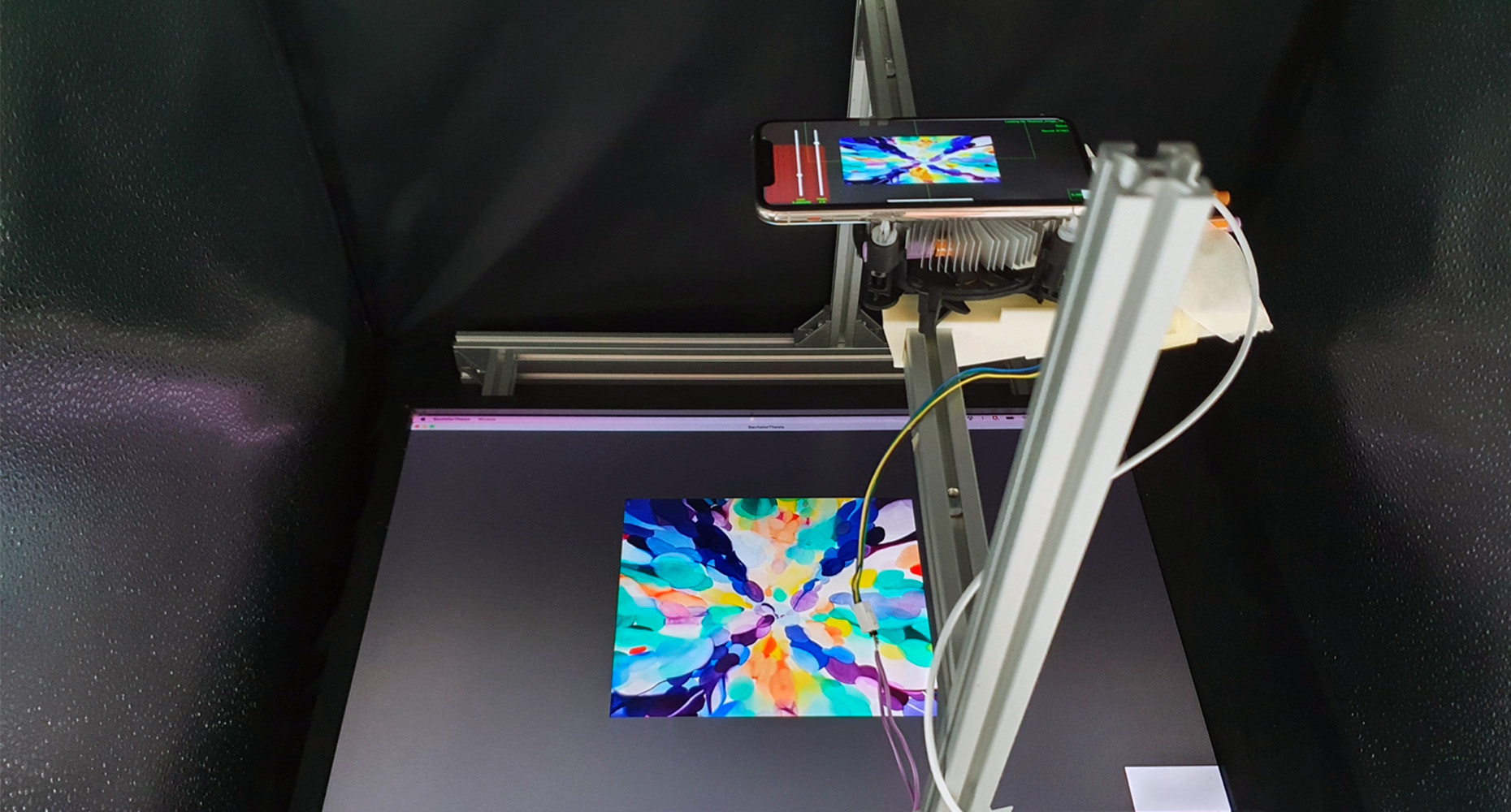Measuring Tracking Performance of Augmented Reality Algorithms
Jan Niklas Appel
Bachelor's Thesis, August 2022
Supervisors: Börge Scheel, Henry Raymond, Prof. Dr. Bob Sumner

Abstract
When building an augmented reality (AR) application, it is important to be able to objectively compare different AR frameworks to make a suitable choice for development. Previous studies have analysed tracking precision and other properties of AR frameworks. However, few to none have analysed the recognition time of markers, especially with commercial AR algorithms.
In this paper, we construct an automated pipeline to measure the recognition time of markers for given AR frameworks. We then run measurements on a set of representative markers with the popular AR frameworks Vuforia and AR Foundation, the latter of which includes the core features from ARCore and ARKit. Finally, we conduct a thorough analysis of the collected data to determine what AR framework works better under specific conditions, as well as try to find characteristics of a marker with low recognition time.
We find that in most scenarios, all AR frameworks perform similarly well and only under specific conditions do they perform significantly differently. Markers with high numbers of tracking features tend to be recognised more quickly and common image analysis metrics do not seem to have an impact on performance.